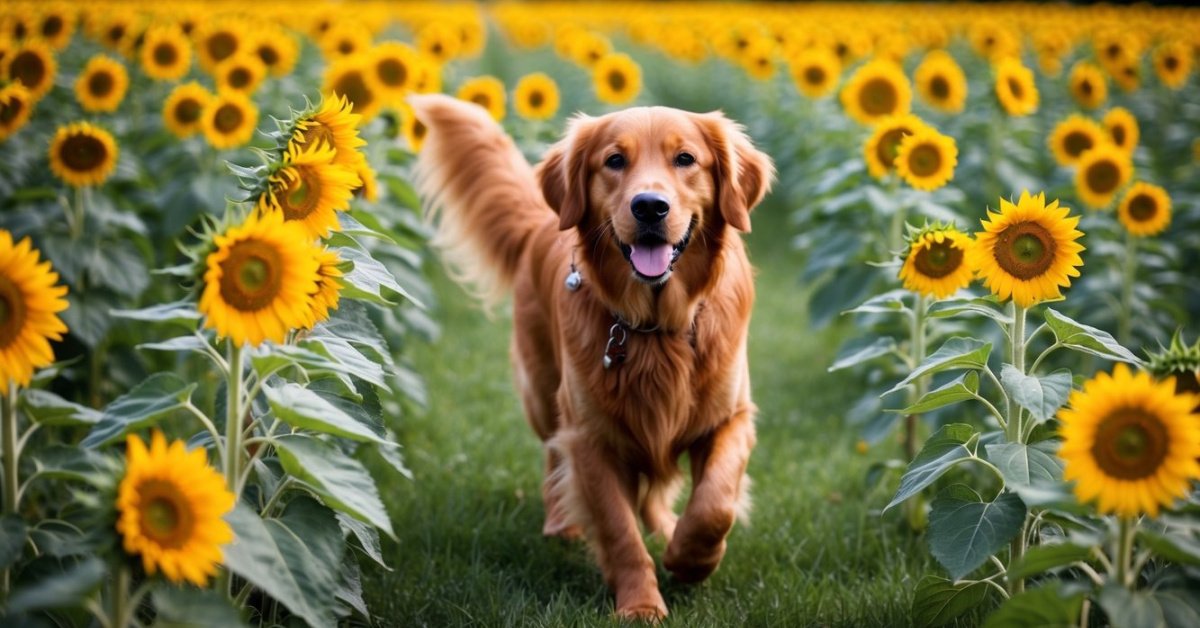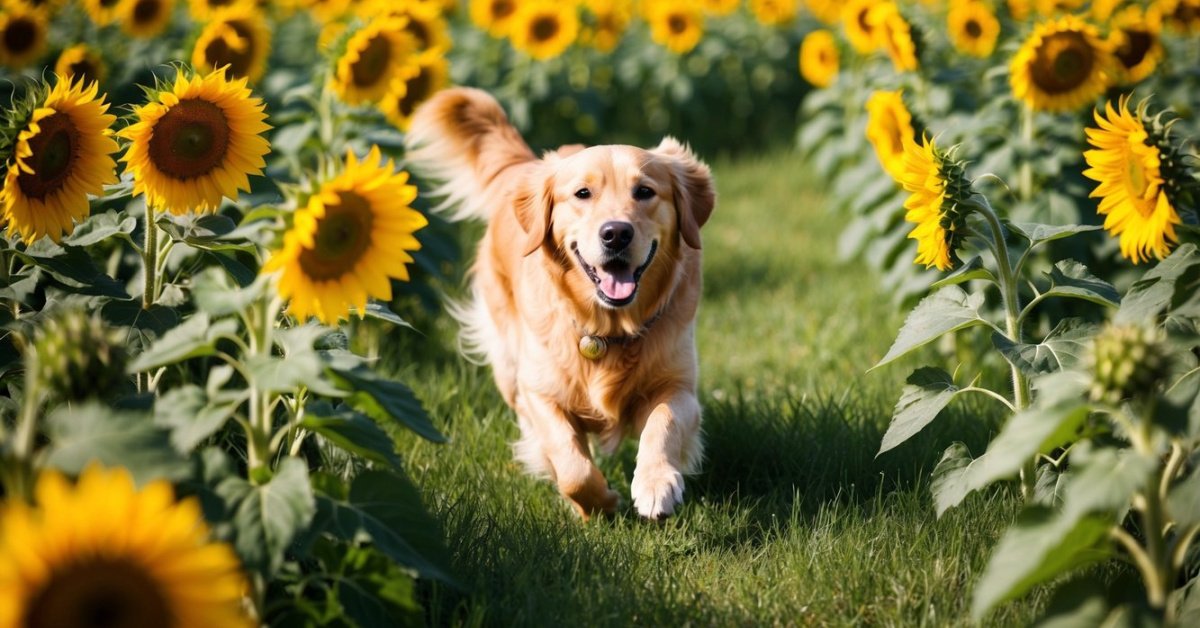Congratulations on taking the next step in becoming a proud new Golden Retriever owner! Bringing a 6-week-old Golden Retriever into your home can be an exciting and rewarding experience, but it’s important to know what to expect.
In this article, we’ll explore the characteristics of a 6-week-old Golden Retriever, as well as how to care for, socialize, and train your furry friend to ensure they grow up healthy and happy. Creating a safe and comfortable environment for your young pup is key, and we’ll provide tips on how to do so.
As someone who has worked with thousands of dogs through dog shelters and breeders, we know that owning a Golden Retriever can be challenging at times but incredibly rewarding. So, whether you’re a new dog owner or an experienced one looking for a refresher, continue reading to learn more about raising a 6-week-old Golden Retriever.
Characteristics of a six-week-old Golden Retriever
Congratulations on your new furry friend! At six weeks old, your golden retriever is still a young pup with a lot to learn about the world around them.
One of the most notable characteristics of a six-week-old golden retriever is their boundless energy and curiosity. They are eager to explore their surroundings and play with anything they can get their paws on. It’s important for new owners to provide plenty of mental stimulation through toys, games, and training exercises.
At this age, it’s also crucial for owners to begin socializing their puppy with other dogs and people. Golden retrievers are known for being friendly and outgoing dogs, but proper socialization during these early weeks will set the foundation for positive behavior as they grow older.
Another characteristic of six-week-old golden retrievers is that they may still be developing bladder control. Be prepared for frequent potty breaks throughout the day and night until your pup becomes fully housetrained.
As an experienced dog handler who has worked in both shelters and breeders settings I strongly recommend crate training as an effective method in teaching good habits like housebreaking while providing safety & security especially when you’re not home or unable to watch over your pet closely
Overall, owning a golden retriever at any age requires patience, consistency in discipline & reward system which ultimately strengthens trust between owner-pet relationship leading towards happy healthy companionship full love affection loyalty that only man’s best friend can offer!
Caring for a six-week-old golden retriever: feeding, grooming, and health.
Caring for a 6-week-old golden retriever requires knowledge and attention to detail. As someone who has worked with thousands of dogs through dog shelters and breeders, I can assure you that proper feeding, grooming, and health care are essential for your puppy’s growth and development.
Firstly, feeding your golden retriever is crucial at this stage. You should feed your pup small portions of high-quality puppy food four times a day until they reach three months old. Make sure the food is rich in protein to help their muscles grow stronger.
Grooming is also an important aspect of taking care of your furry friend. Brushing their soft fur daily helps remove dirt and tangles while keeping them looking neat. Additionally, it keeps shedding under control by distributing natural oils throughout the coat.
Lastly, ensuring good health practices will prevent any potential problems from arising as they grow older. This includes regular vet visits for check-ups on vaccinations or any underlying conditions that may have gone unnoticed during birth or early stages of life.
In summary: Caring for a 6-week-old Golden Retriever involves providing them with nutritious meals several times daily; maintaining good hygiene through regular grooming; making sure they receive necessary medical attention such as vaccines or routine checkups by veterinarians to avoid possible infections in later years when bigger issues could arise due lack thereof preventative measures taken now!

Socializing and training your six-week-old golden retriever
« A Guide to Adopting a Golden Retriever from a Rescue Organization in Virginia
Choosing the Best Toys for Your Golden Retriever Puppy: Tips and Recommendations from a Dog Expert »
As a seasoned dog trainer who has worked with thousands of dogs through shelters and breeders, I can confidently say that socializing and training your 6-week-old golden retriever is critical for their development.
At this young age, your puppy is like a sponge, soaking up everything around them. It’s important to expose them to new experiences in a safe and controlled manner. This includes introducing them to people of all ages, other dogs (once they have received their vaccinations), different environments such as parks or busy streets, and various sounds like car horns or thunderstorms.
Consistency is key when it comes to training your golden retriever puppy. Basic obedience commands such as sit, stay, come should be taught using positive reinforcement techniques. Treats are great motivators but make sure not to overfeed your pup – small pieces of kibble will do the trick!
Potty training can also start at this age by taking frequent trips outside after meals or naps and rewarding good behavior with praise.
Remember that every puppy develops at their own pace so don’t get discouraged if progress seems slow at times. Patience combined with positive reinforcement-based methods will lead you down the path towards success in raising a well-behaved furry friend!
Creating a safe and comfortable environment for your young Golden Retriever
Creating a safe and comfortable environment for your new 6 week old golden retriever is crucial for their physical and mental development. As someone who has worked with thousands of dogs through dog shelters and breeders, I have seen firsthand the importance of providing a nurturing environment for young puppies.
Firstly, it’s important to create a designated space for your puppy that is safe and secure. This can be achieved by using baby gates or crates to restrict access to certain areas of your home where hazards may be present. Additionally, providing soft bedding such as blankets or dog beds can help create a cozy sleeping area that will make them feel at ease.
Secondly, socialization is key in helping your puppy develop into a well-adjusted adult dog. Exposing them to different people, animals, sights and sounds from an early age will help reduce anxiety around new experiences later on in life. It’s also important not to overwhelm them with too much stimulation all at once – gradual exposure over time is best.
Finally, proper nutrition plays an essential role in supporting healthy growth during the puppy stage. Consult with your veterinarian about what type of food would be appropriate based on their size and age – they may recommend specially formulated puppy food that contains added nutrients necessary for optimal development.
In conclusion, creating a safe and comfortable environment requires careful planning but it’s worth it when you see how happy they are! By taking steps like establishing boundaries through baby gates or crates; introducing new experiences gradually instead of overwhelming them all at once; ensuring proper nutrition; giving plenty opportunities socialize – you’ll set up both yourself & pup up success!

Understanding the growth and development stages of a Golden Retriever puppy
As a seasoned expert who has worked with thousands of dogs through dog shelters and breeders, I can attest that understanding the growth and development stages of a golden retriever puppy is crucial for any new dog owner. At 6 weeks old, these puppies are at an incredibly important stage in their lives.
At this stage, your furry friend will be transitioning from solely consuming their mother’s milk to eating solid food. It’s essential to introduce them to high-quality puppy food that meets all their nutritional needs while they’re still young.
Additionally, socialization is key during this period. Your pup should be introduced to different sounds and experiences so they can get used to the world around them without fear or anxiety.
Finally, training should also begin at 6 weeks old. Positive reinforcement techniques work best with puppies as it helps reinforce good behavior while minimizing bad habits.
Overall, understanding the critical developmental stages of your golden retriever puppy ensures that you give them every opportunity possible for optimal growth both physically and mentally – allowing you both years of joyous companionship together!

Conclusion
Raising a 6-week-old golden retriever is a rewarding experience. With patience, dedication, and understanding of the growth stages of puppies you can create an amazing bond with your new furry family member. As their owner, it’s important to provide them with lots of love and have realistic expectations for their development. If you are looking for more information or resources about raising Golden Retriever Puppies join our newsletter today!

















